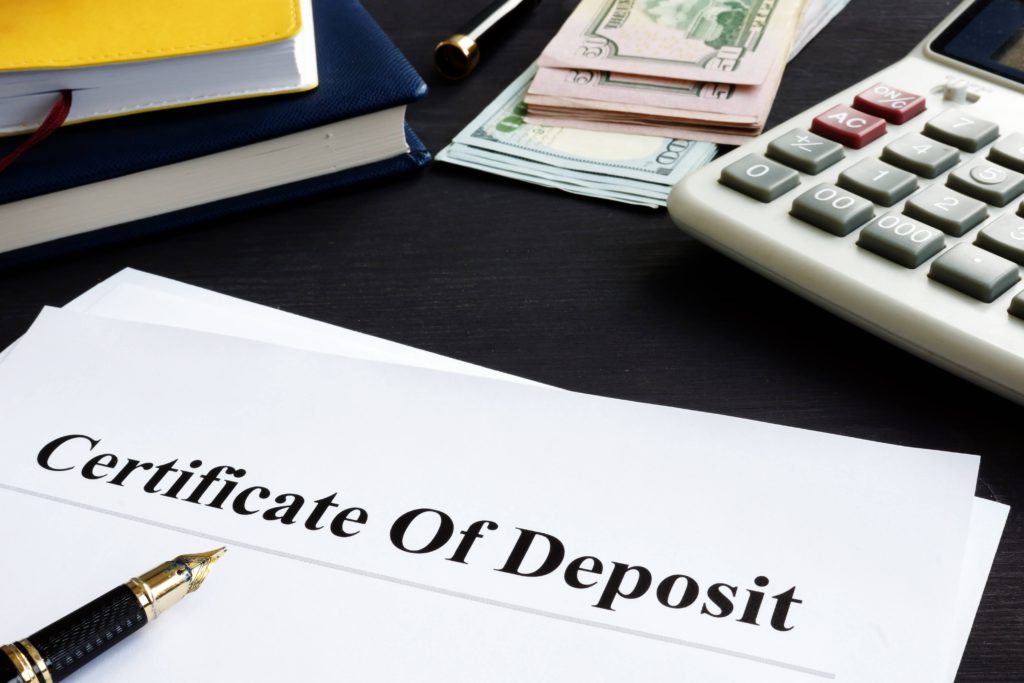A certificate of deposit is a certificate providing evidence of a bank time deposit. It is merely a time deposit with a specified maturity date and which cannot be withdrawn before this date without being subjected to an interest penalty for early withdrawal.

A certificate of deposit, otherwise known as a CD, is a product that banks and credit unions offer which provides the buyer or customer. It comes with an interest rate premium in exchange for the customers’ agreement to leave a particular amount deposited for an agreed length of time.
A certificate of deposit is offered by most financial institutions — however, each financial institution has its terms and conditions with a certificate of deposits policy. Such conditions include the extent to which the rate will be higher in comparison to other products like savings and money market products, as well as nuances like penalties for withdrawal of finances before the maturity date.
How do certificates of deposit work?
Certificates of deposit operate similarly to how regular deposit accounts at banks function. The significant difference is that there are specific terms and conditions with certificates of deposit that you agree to. An individual with an interest in certificates of deposit just needs to look around the various available options and choose which would serve them best. After this choice is made, you complete a process. This process entails a few factors.
What factors are involved in getting a Certificate of Deposit?
There are four major components of a certificate of deposit agreement. They are;
- Term: this refers to the length of time or period in which the Certificate of deposit matures. In other words, it is the length of time that you leave your funds as a deposit without any withdrawals. It could be from 6 months to any more extended amount of time. Upon expiration of the maturity date, you can withdraw your funds without any penalty.
- Interest rate: this refers to the percentage rate with which your investment appreciates. It is a locked rate, which means it doesn’t change, no matter what. It could be an advantage, in the sense that in the event of any economic challenges, your CD is not affected. On the other hand, should there be an economic boom and interest rates go higher, you cannot benefit from it.
- The financial institution: this is the bank or credit union where you buy the Certificate of Deposit. The institution determines your interest earned, the term and any other policies; such as any penalties for withdrawing before the maturity date.
- Deposit: also known as the principal, refers to the amount you put into the Certificate of Deposit agreement.
After the deposit has been made and the agreement reached, the time begins to run on your investment.
Why should I consider a Certificate of Deposit?
If not for anything else, Certificates of deposit are one of the safest ways to invest your finances. This is because they run on fixed interest rates, as well as being federally insured. Not to mention that the higher the amount deposited, the more likely you are to receive a higher interest rate.
CONCLUSION
If you are looking to earn more on your savings than you’d get on any other type of account, then investing in a certificate of deposit is something you should put into consideration.